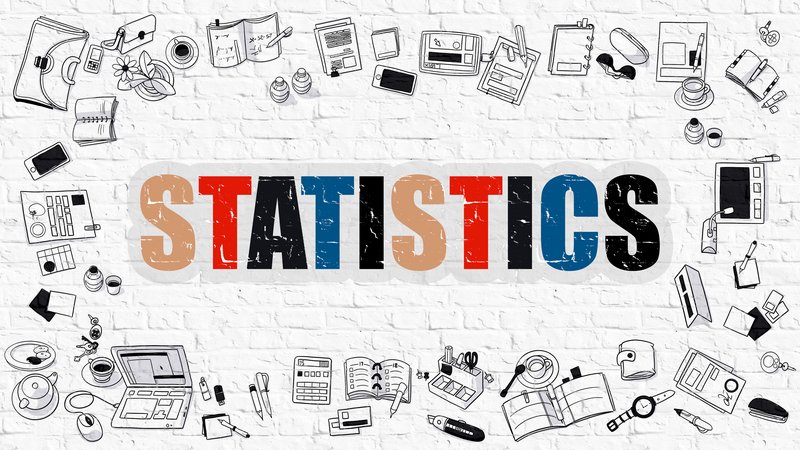Statistics Career Opportunities Scope, Jobs, Requirements, and Salary Information for Admissions, Courses, Professional Programmes, Experience Training Programmes, and Income Information for Starting a Career in Statistics. The study of data gathering, organisation, analysis, interpretation, and presentation is known as statistics. It is customary to start with a statistical population or a statistical model process to be researched when applying statistics to, say, a scientific, industrial, or social problem.
This area of mathematics focuses on the study of probability theory and the use of statistical techniques to analyse complicated systems. The statistician will be knowledgeable in using different statistical models and methods to analyse collected data. Methods of sampling might be planned to get certain data.
If enough details are provided, you may compute the mathematical likelihood of an event. Numerous other scientific disciplines, such as economics, materials studies, health, psychology, and sociology, can benefit greatly from the statistics. You can work in industries including social studies, actuarial science, market research, and more. The large mathematical field of statistics examines how to gather, summarise, and derive conclusions from data. It is relevant to a wide range of academic disciplines, including business, government, and industry as well as the physical, social, and humanities.
[lwptoc]
Statistics Career Opportunities in Pakistan

What are Statistics?
The collection, analysis, description, and drawing of conclusions from quantitative data are all part of the field of statistics, which is applied mathematics. These mathematical theories of statistics make extensive use of linear algebra, probability theory, and numerous integral calculi. Statistics come in two main categories. descriptive statistics that use data that has been collected or observed and summarised. Descriptive data are interpreted using inferential statistics. Both of these are widely employed.
Scope of Statistics in Pakistan?
Many of you must be asking if Pakistan has a statistically significant population. Well, Pakistan has a vast array of statistics. It is most likely one of Pakistan’s greatest industries, with some of the highest-paying positions. Because there are so many career prospects in Pakistan for statisticians, finding employment for someone with a degree in statistics is not difficult. Therefore, if you are considering a career in statistics, it is one of the best choices you will ever make because it is a very demanding area in Pakistan and has a promising future.
There are four major types of descriptive statistics:
- Measures of Frequency: * Count, Percent, Frequency.
- Measures of Central Tendency. * Mean, Median, and Mode.
- Measures of Dispersion or Variation. * Range, Variance, Standard Deviation.
- Measures of Position. * Percentile Ranks, Quartile Ranks.
Study Tips for the Student of Basic Statistics
- Use distributive practice rather than massed practice.
- Study in triads or quads of students at least once every week.
- Don’t try to memorize formulas (A good instructor will never ask you to do this).
- Work as many and varied problems and exercises as you possibly can.
- Look for reoccurring themes in statistics.
Jobs for Statistics Career Opportunities?
Finding a career in this profession is simple because there are so many high-paying positions accessible in Pakistan due to the great demand for this industry.
• Data Analyst
• Data Scientist
• System Developers
• Investment Analyst
• Charter Accountant
• Financial Manager
• Financial Trader
• Operational Researcher
• Software Tester
• And much more
What is the Salary?
While an individual’s skills, area of expertise, and amount of work experience all affect their salary, their employment location also affects it. Given that salaries might differ from city to city, a person’s income also relies on the city in which they work. However, the beginning wage in Pakistan ranges from 55,000 to 95,000 per month. However, if you have a lot of expertise and great skills, many international corporations or a tonne of other sectors may potentially offer you a higher income.
BS Statistics Subjects In Pakistan:
The following is a list of some of the main BS Statistics courses that are offered by the majority of Pakistani institutions.
- English
- Basic Statistics
- Accounting
- Economics
- Fundamentals of Mathematics
- Probability and Applied Sciences
- Pakistan Studies
- Economics
- Physics
- Chemistry
- Communication Skills
- Bio Statistics
- Econometrics
- Operation Research
- Multivariate Analysis
Statistics Offering Universities In Pakistan:
There is a list of Pakistani universities that provide a BS in statistics.
- Government College University
- University of Gujrat
- Allama Iqbal Open University
- University of Karachi
- International Islamic University
- Lahore College Women University
- Virtual University of Pakistan
- The University of Agriculture
- National College of Business Administration & Economics
- Lahore Garrison University
- COMSAT Institute of Information Technology
- Foundation University
- The University of Central Punjab
- University of Management and Technology
- The Islamia University
